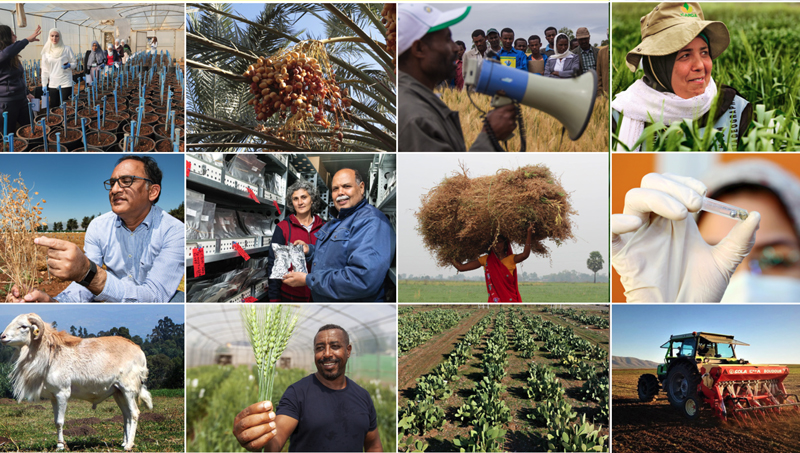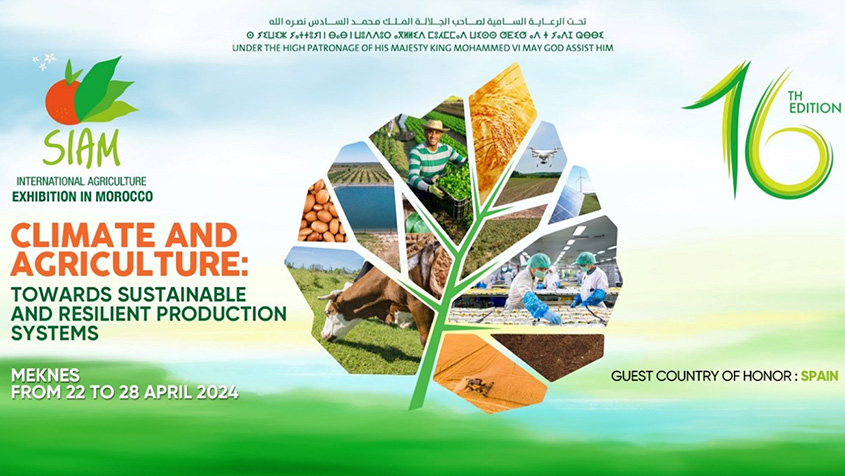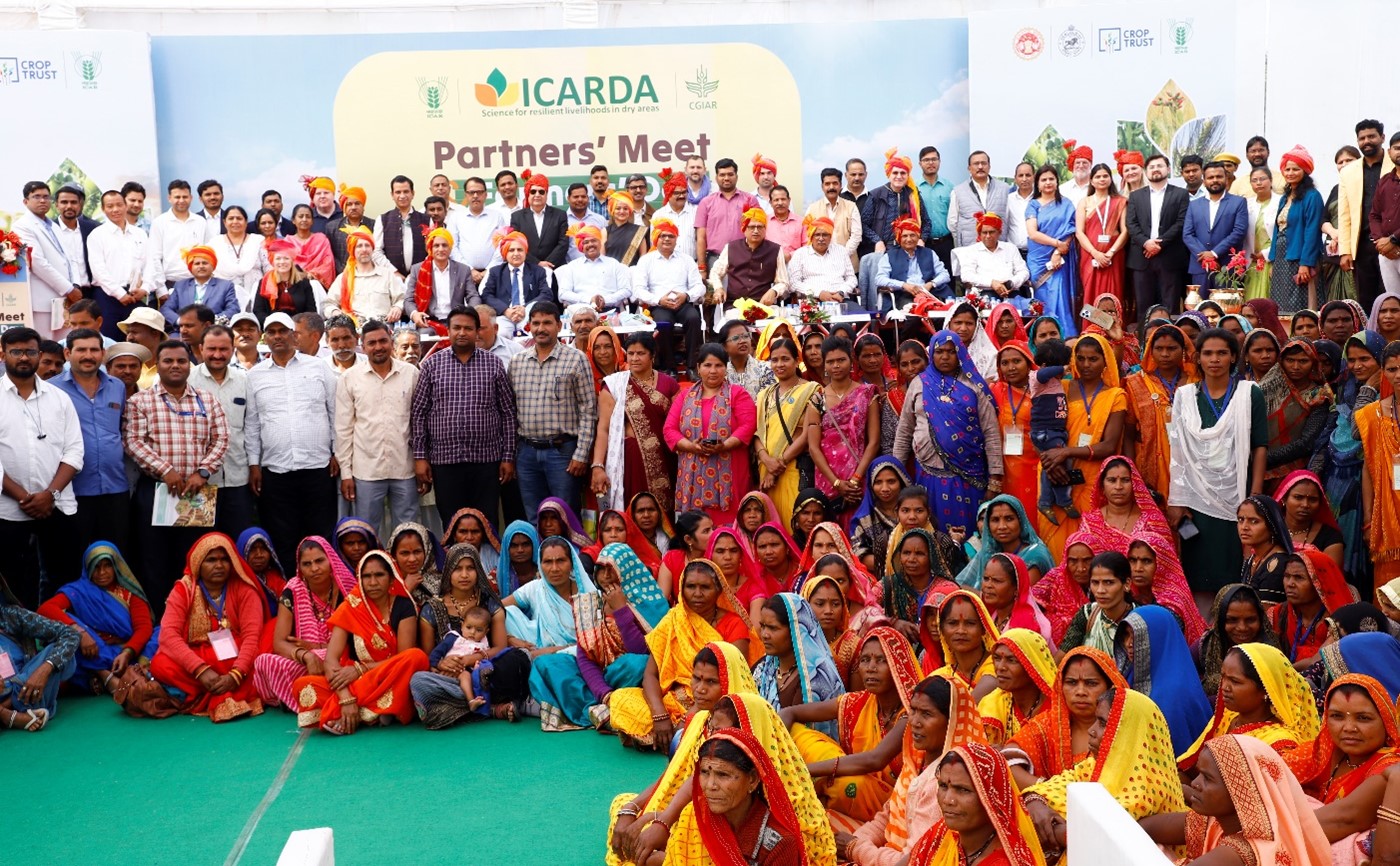Cutting edge technology for Egyptian Farmers
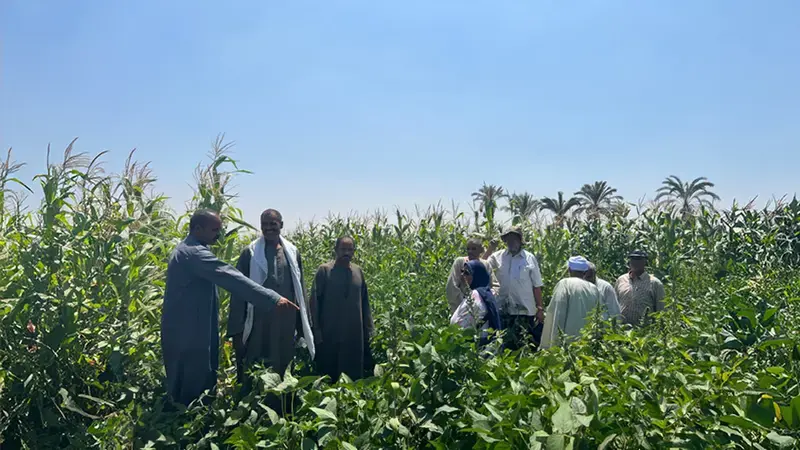
Two field days were organized in Egypt to introduce farmers to cutting-edge multi-seed planter models and the latest integrated agronomic bundles.
August 2023: ICARDA, in collaboration with Egypt's Agriculture Research Center (ARC), organized field days to the Sids Research Station at Beni-Sueif and the experimental farmer field location in Nubaria. The technology bundles on offer encompass state-of-the-art irrigation systems, planting methods and fertilizer applications. They are currently undergoing rigorous testing in our ongoing field experiments to enhance water productivity, achieve cost efficiency, and attain impeccable crop quality. Around 20 farmers attended each field day.
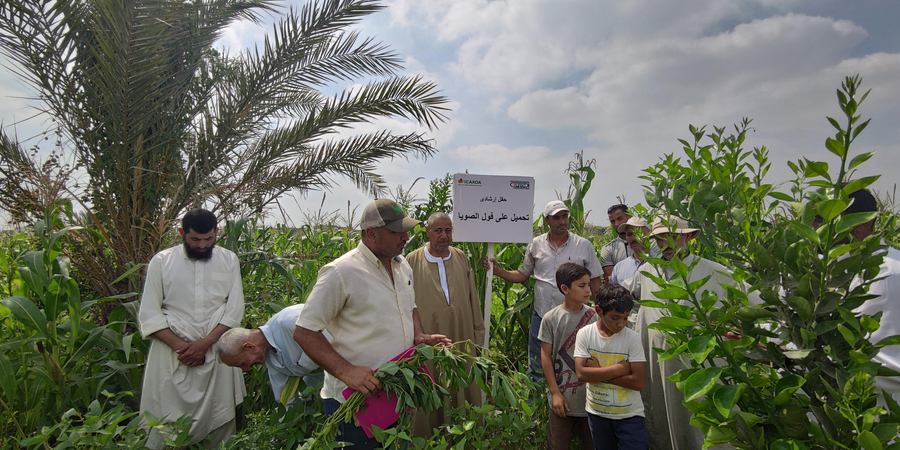
The field days kicked off with a session to foster interactive dialogue between the farmers and ICARDA and ARC scientists designed to facilitate the flow of ideas, knowledge, and insights into ICARDA's latest advancements in crop productivity and irrigation systems. A tour of the demonstration fields followed this.
During the current planting season, eight farmers' fields were established outside the research station, serving as living laboratories of innovative practices and as a showcase of smart agricultural techniques, including soybean and maize intercropping, the application of foliar biofertilizers, and the utilization of raised beds. These practices were compared with conventional methods typically employed by the farmers, allowing for a comprehensive assessment of their efficiency and effectiveness.
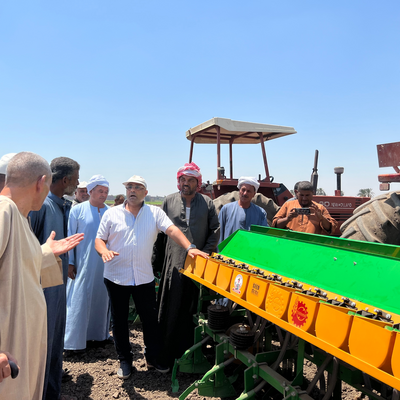
At Sids, Dr. Ahmed Ezzat, the farm mechanization expert at the Agriculture Engineering Research Institute (AEnRI-ARC), introduced two groundbreaking models of ICARDA's latest innovation—the multi-seed planters. The two new models are mainly designed and manufactured, to suit small-scale lands, as lightweight machines mounted in medium-power tractors, and they support the planting of a wide range of medium-sized seeds. These planters were demonstrated to local farm machinery operators, equipping them with hands-on training to use them for optimal results.
"The machine is amazing! It's so easy to use and works really well. As a farmer, it's a game-changer for me. Not only does it make my work more efficient, but it also helps me save on seeds and fertilizers." - Tharwat Mohamed AbelAziz, Farmer
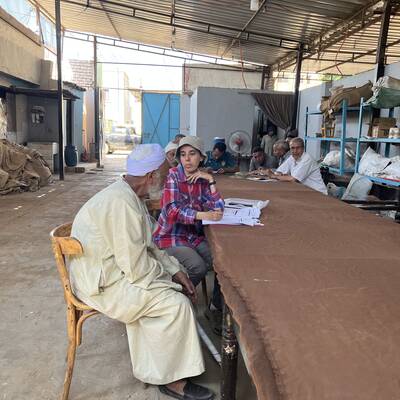
To gauge the impact of these demonstrations, Dr. Samar Attaher, Research Associate of the Soil, Water, and Agronomy Team at ICARDA, conducted surveys with the participating farmers to examine and evaluate their experiences and assess the potential benefits of the technologies and practices showcased during the events from the farmers' perspective. The farmers’ feedback was very positive towards the demonstrated innovations. However, they believe they need more support in terms of extensive training and capacity-building involvement activities. Also, they emphasized the importance of institutional collaboration in ridged frameworks to make the innovations handful and applicable at the farm level, by supporting the availability of the needed inputs of each innovation and increasing the economical profitability of the full cropping system.
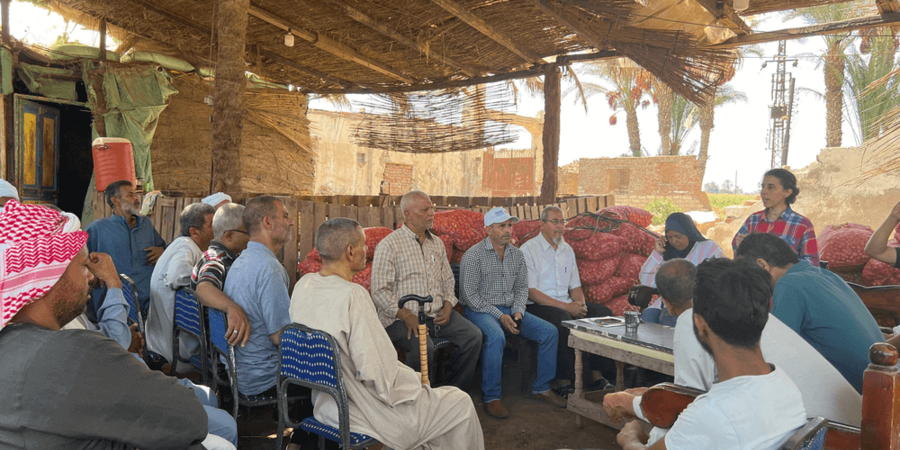
"Engaging farmers and understanding their perspectives is crucial for guiding agricultural research in the right direction. While introducing technology and innovations is important for improving crop production, it must be accompanied by capacity-building and stakeholder participation strategies to meet community needs effectively." - Dr. Samar Attaher, Research Associate of the Soil, Water, and Agronomy Team, ICARDA
Ensuring our research's relevance, affordability, and scalability remains a paramount priority for ICARDA. Equipping the communities with the latest tools and knowledge about how to use them empowers them to build on their traditional agricultural practices, enhancing yields and boosting their resilience and livelihoods in the face of an intensifying climate crisis.
----------------------------------------------------------
These demonstrations are supported by CGIAR Initiatives: Excellence in Agronomy (EiA) and From Fragility to Resilience in Central and West Asia and North Africa (F2R-CWANA).

